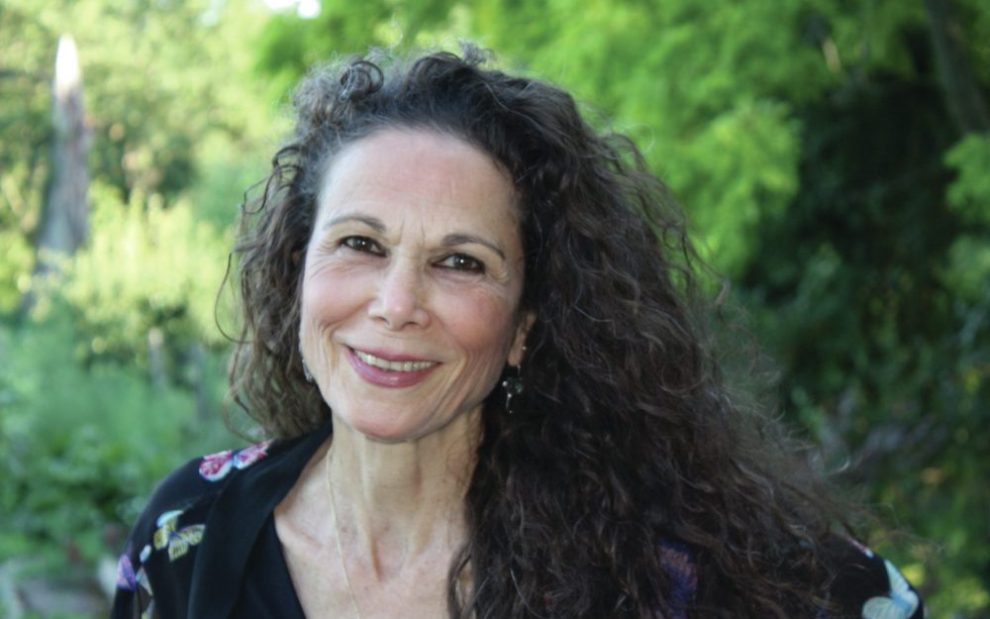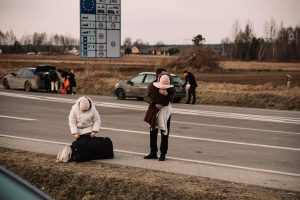Who am I going to be anymore? Antonia had asked. . . . No longer a teacher at the college, no longer volunteering and serving on half a dozen boards, no longer in the thick of the writing whirl—she has withdrawn from every narrative, including the ones she makes up for sale. Who am I? the plaintive cry.
Toward the conclusion of Afterlife (Algonquin Books), a 2020 novel by Vermont-based novelist and poet Julia Alvarez, Antonia Vega, the book’s protagonist, reflects on a number of what might be termed “end of life” issues. Throughout the story, the college teacher and writer struggles to add meaning and purpose to her days as she copes with a series of losses: widowhood, retirement, and the disappearance of a family member.
Readers of a certain vintage can readily sympathize with Antonia’s outlook as she adjusts to her reduced circumstances. As Alvarez writes:
[Antonia] has continued to think a lot about the afterlife, especially in the absence of any sign from [her deceased husband,] Sam. What, if anything, does it mean? An afterlife? All she has come up with is that the only way not to let the people she loves die forever is to embody what she loved about them. Otherwise the world is indeed depleted.
Perhaps it’s no surprise that a writer with an extensive body of novels, poetry, essays, and children’s stories would use this world-weary protagonist to ponder these “what’s in store” questions as she enters the autumn of her years.
Like Alvarez herself, Antonia was raised in the Dominican Republic but immigrated to the United States with her family in the early 1960s. It’s a construct that appears in other novels by Alvarez as well, including How the García Girls Lost Their Accents (Algonquin Books, 1991), Yo! (Algonquin Books, 1997), and Return to Sender (Yearling, 2009).
Since the release of her first book, How the García Girls Lost Their Accents, Alvarez has completed six novels, three collections of poetry, three nonfiction works, and 11 works for children and young adults. She continues to earn praise from critics as a writer with a rare ability to absorb wisdom from wherever she finds it and to put it to use in her own books, stories, and poems.
Many of her books touch on the experience of Latina women looking to reinvent themselves in New York City in the latter decades of the 20th century. Not only do they struggle to learn the language and manners of the Americans they encounter, but they must also overcome the “otherness” of new arrivals to an established community.
While Alvarez is the kind of writer who resists easy labels and might quibble at being considered a “Catholic” writer, there is still a discernible Catholic element to her work. The Catholic Church has influenced Alvarez’s writing and worldview, which can be seen in characters such as Afterlife’s Antonia and her reflections on what comes next and her search for meaning in all of life’s stages.
A cultural faith
Alvarez was raised in a Catholic household both in New York and in her parents’ native Dominican Republic. In a May 2021 New York Times opinion column, she writes of the impact this had on her identity: “I was born in Nueva York, but my parents returned to their homeland when I was a month old. They immigrated again when I was 10. I was American, but not American. I was an immigrant but not really. From the get-go, my identity wasn’t easy to untangle. I didn’t know how to talk about who I was, but I knew what made me uncomfortable.”
Not an especially avid reader as a child, the young Alvarez eventually discovered books and storytelling as an engaging way to launch her own career. With Scheherazade—the storytelling captive princess in “One Thousand and One Nights,” a Middle Eastern tale—as her early muse, Alvarez certainly followed a winding path to her present situation. She reasoned that spinning tales would not only entertain and edify, but it might also bring meaningful purpose to her life and work. In essence, Alvarez cottoned on to the idea that spinning tales has salutary value, not just to the listener but to the creator of those very same tales.
Alvarez also speaks of the “oral culture” of Dominicans in which stories were told in a community setting. “I grew up in that rich oral culture surrounded by the world’s best storytellers,” she says. “We didn’t have many books around, and the dictatorship of course enforced strict censorship of what books were permitted into the country.”
She parallels this oral tradition and the parables told by Christ during his time on Earth. “Parables were Christ’s preferred mode of teaching and enlarging the moral imagination of his followers—as it has been for most faith leaders in the world religions,” she says.
As she discovered her voice and grew more confident in her expression, Alvarez found that her convictions often caused her to disagree with authority figures, whether it be her parents, government leaders, or the Catholic Church. Added to this was the fact that the church in the Dominican Republic ignored or implicitly supported the repression and injustice wreaked by Dominican strongman Rafael Leónidas Trujillo Molina, who ruled the island nation from February 1930 until his assassination in May 1961.
Parables were Christ’s preferred mode of teaching and enlarging the moral imagination of his followers—as it has been for most faith leaders in the world religions.
In an essay contained in her 1998 memoir, Something to Declare (Algonquin Books), Alvarez writes, “And so, long after we had left, my parents were still living in the dictatorship inside their own heads. Even on American soil, they were afraid of awful consequences if they spoke out or disagreed with authorities.”
Partly as a result of experiencing the impact of the repression and violence that colored so much Dominican history, Alvarez uses her fiction to champion the voiceless and marginalized. She also takes a dim view of authoritarian institutions—whether government, church, or state—and their exclusion of those who do not conform to accepted thinking. “Certain ideas about who gets in and who is left out make me uncomfortable,” she says. “That’s one of my problems with the church. When you start leaving people out because they’re not doing certain things, I begin to have some doubts.”
Added to this cultural history is the fact that Alvarez is committed to certain social rights and gender issues that are not embraced in some Catholic circles, making her feel alienated from much of the institutional church. “I struggle with the Catholic Church,” she says. “I’ve actually joined my husband’s Episcopal church, St. Stephen’s, here in Middlebury, Vermont. I am much more comfortable with the tolerance and inclusivity that I’ve found at St. Stephen’s.”
That said, spirituality and faith practices still play an important role in Alvarez’s life and work, especially the meditative elements of the Christian faith tradition that exist apart from what she refers to as the more “hierarchical” forms of prayer and church structure. She participated in a centering prayer group that led her to an appreciation of the meditative practices of the desert mothers and fathers—early Christian hermits and ascetics who developed a form of desert monasticism. She’s also interested in Buddhist faith practices, an appreciation that is reflected in some of her recent novels and children’s stories.
A literary faith
Alvarez’s poetry offers insight into the influence of Catholicism on her writing. For example, the poem “My Kind of Woman,” found in the 2004 poetry collection, The Woman I Kept to Myself (Algonquin Books), reads:
First off, we can start with Eve, who misbehaved,
taking a bite of the forbidden fruit,
a woman not afraid to risk God’s ire
or Adam’s blame to know good from evil.
Or Lot’s wife—does she even have a name?
who suffered death because she chose to turn.
Oh, so to love the sight of what she loves—
the red roof on her house, her line of wash—
that she gave up salvation for a glimpse.
My kind of woman: bold and curious.
In the same poem, Alvarez offers a gentle tribute to the Blessed Virgin:
I like the quiet, pensive ones as well:
Mary, so often praised for the wrong things:
her humbleness, her sweet docility,
her loving parenting of Jesus Christ,
instead of her most worthy quality:
her Buddhist calm in the face of shocking news—
that she was pregnant with the son of God!
She didn’t balk or ask to be excused
or worry what her parents were going to think.
My kind of virgin, guilt- and fancy-free!
However, as someone with concerns about the rigidity of the faith in which she was raised, Alvarez was surprised to be invited to a Catholic “literary imagination” conference in Los Angeles in 2015. In a 2015 America magazine article, Alvarez questions why she was even invited to address a “Catholic” writers’ conference.
It was poet Dana Gioia who convinced Alvarez that she would not be out of place at a conference dedicated to Catholic literature. The former poet laureate for the state of California, Gioia is professor of poetry and public culture at the University of Southern California. In a 2013 essay published in First Things and titled “The Catholic Writer Today,” he posits that there are at least three degrees of “literary Catholicism”: those who practice their Catholic faith and remain active in the church; “cultural Catholics” who have been raised in the church and who, while they may have drifted away from the faith as adults, still demonstrate a Catholic worldview in their fiction; and “anti-Catholic Catholics” who have broken with the faith and often sprinkle their creative output with the church’s real or imagined faults and failings.
Alvarez’s comments at the conference showed how her writing and understanding of the world are still affected by Catholicism. She described the Catholic Church as a “big faith” that can be kept alive by the “constant reinvention and breaking apart, because the spirit is bigger than our containers for it.”
This “big faith” shows up in several ways in Alvarez’s fiction and memoir, including through the recurring theme of the challenge to the individual in the face of suffering and injustice. In her 2006 novel, Saving the World (Algonquin Books), for example, Alvarez recounts the story of Isabel Sendales y Gómez, an early 19th-century Spanish guardian who joins an expedition to bring a smallpox vaccine to the Americas.
In a sense, Saving the World is a novel within a novel, told from the dual perspectives of Isabel and a present-day Dominican expat, Alma Heubner, who, not unexpectedly for Alvarez’s creations, is a middle-aged writer grown somewhat jaded with her life and work. While neither protagonist is especially devout or religious, they both express a clear Catholic sensibility—sympathy for the less fortunate along with interior brooding as to the meaning of suffering and what the individual might do to make the world a better place.
A passage late in the novel provides some insight into Alvarez’s concerns about seeking creature comforts in an often unjust, unsettled world where even suffering is not dished out evenly. Alma reflects on what she calls a “homeland rage”:
This periodic homeland rage that would crop up out of nowhere, even though she had been in the United States almost forty years, this feeling that her own luckiness was off the backs of other people, not because her family had been exploiters but because the pool of the lucky was so small in that poor little place that God forgot.
Alvarez’s writing continually reflects on compassion and what individuals are called to do to earn our place in, if not heaven, then the “afterlife,” wherever and however it exists. In the essay “Fifteen Stations in the Passion According to Mark,” reprinted in the 2015 book All Shall Be Well (Orbis Books), a collection of readings for Lent and Easter, Alvarez describes Mark’s story as best understood as an ongoing challenge to contemporary readers. “In the Passion according to Mark,” Alvarez writes, “we are being forced to acknowledge the horrors inside our own military, our own country, our own religion, our own heart. It’s as if those sentences were breaking us down as well, as if we, too, have to end up with Peter, weeping on the ground over our inhumanity to one another.”
An activist faith
In her 2012 memoir, A Wedding in Haiti (Algonquin Books), Alvarez describes being invited to a friend’s wedding in a small, practically inaccessible Haitian village. The friend, Piti, was a Haitian farmworker who crossed the border as a teenager. Alvarez and her husband became surrogate parents of a sort. “When Piti called us in Vermont asking us to be the godparents of his wedding to [his wife,] Eseline, we couldn’t say no, [but] we had no idea what we were getting into,” she writes.
While traveling through Haiti, Alvarez was impressed with the resiliency and spirit of Haitians. “Their resilience, generosity of spirit and sense of community are far richer than anything I had ever encountered in the so-called First World,” Alvarez writes. “These are values they could teach us—values that it behooves us to learn if we’re to survive in this troubled world and suffering planet.”
Alvarez’s experiences in Haiti along with her family and cultural background have caused her to be committed to activism and community development both in the United States and abroad. Long devoted to the struggles of young people in the Dominican Republic, neighboring Haiti, and other parts of the Caribbean, in 1997 Alvarez founded Finca Alta Gracia, a sustainable farm and literacy center in the Dominican Republic dedicated to cooperative and independent coffee farming.
Their resilience, generosity of spirit, and sense of community are far richer than anything I had ever encountered in the so-called First World.
She is joined in that pursuit by her husband, Bill Eichner, an ophthalmologist who has become central to Alvarez’s still evolving life narrative. “Bill is originally from Nebraska, and his parents were sharecroppers,” Alvarez says. “He has always wanted to get involved in a project with small farmers who were being pushed out of the coffee market by agribusiness operators who look to buy them out and do not allow for competition. Once we got started, we decided to add the literacy program there because very few of the local people knew how to read and write.”
Alvarez also serves as honorary chair of the Mariposa DR Foundation, an organization promoting education, environmental awareness, health and safety, and entrepreneurial opportunities for teenage girls in the Dominican Republic.
In addition to coffee farming and literacy work, Alvarez is active with Border of Lights, an activist organization encouraging positive relations between Haiti and the Dominican Republic. Part of her concern for Haitian–Dominican harmony stems from the ofttimes violent struggles between the two governments. Alvarez recounts with particular horror the Haitian massacre of October 1937, when then dictator Trujillo ordered the deaths of an estimated 20,000 Haitian migrants who had crossed over into the Dominican Republic in search of basic agrarian work.
In A Wedding in Haiti, Alvarez describes what working with these organizations has taught her about surviving suffering and helping others: “Life is going to be complicated no matter what,” she writes, “so you might as well open the door and invite it into your house. . . . Besides, someday when you have to carry your double bed on your back, someone you once helped might give you a lift. It’s a basic investment plan of the poor: save what you have by sharing it.”
Later in the book, Alvarez offers a word of hope for moving forward even when life seems inescapably hard:
There is no erasing or escaping the relentless march of events. And when that march tramples your loved ones, plays havoc in your part of the world (whether Haiti, Chile, New Zealand, Japan or our own USA), you do what you have to do: you mourn, you bury your dead, you get up the next day and cook for the ones who are left, braid hair, sing songs, tell stories. Somehow you get through. As for the rest of us, we look; we listen; we try to help—even when it seems there is nothing we can do.
In other words, we mourn, we care for those we love, and we work to make the world a better place. Exactly what Catholicism calls us to do.
This article also appears in the November 2021 issue of U.S. Catholic (Vol. 86, No. 11, pages 16-21). Click here to subscribe to the magazine.
Image: Courtesy of Julia Alvarez














Add comment